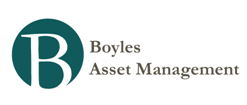Money and Finance
.................
Related book: Antifragile
- Taleb’s Fragile World
How fragile we are. Five years on from the Lehman Brothers collapse, political and regulatory errors have made the world’s financial system even more fragile. This alarming line of thought comes from Nassim Nicholas Taleb, best known for The Black Swan,...
- Nassim Taleb Quote
"Subtractive knowledge is a form of barbell. Critically, it is convex. What is wrong is quite robust, what you don’t know is fragile and speculative, but you do not take it seriously so you make sure it does not harm you in case it turns out to be false."...
- Nassim Taleb Quote
"So the central tenet of the epistemology I advocate is as follows: we know a lot more what is wrong than what is right, or, phrased according to the fragile/robust classification, negative knowledge (what is wrong, what does not work) is more robust...
- Epiphanies From Nassim Nicholas Taleb
Found via Farnam Street. There are three categories of things: Fragile things that break, like the financial system; robust things that don't break easily but don't improve, like the Brooklyn Bridge; and my new category, "antifragile" things that...
- Nassim Taleb On Living With Black Swans
Thanks to Steve F. for passing this along. Nassim Taleb is a literary essayist, hedge fund manager, derivatives trader and professor of risk engineering at The Polytechnic Institute of New York University. But he is best known these days as the author...
Money and Finance
This Is Not a Profile of Nassim Taleb
Taleb is in the university but not of it. He spent the first couple decades of his career as a derivatives trader before turning to scholarship and essay writing in his mid-40s. Taleb is a professor of risk engineering at the Polytechnic Institute of New York University. Despite his wall of degrees (he has an M.B.A. from the University of Pennsylvania's Wharton School and a doctorate from the University of Paris), he believes that universities propagate "touristification," another term he coined, a phenomenon that occurs when what should be an exciting exploration turns into a programmatic exercise. It's better to be an adventurer than a tourist. Education isn't the only result of this modern sin; gym machines and "the electronic calendar" fall short as well.
Taleb has a low opinion of most professors. He titles one section of the new book "The Charlatan, the Academic, and the Showman." In a chart, Taleb divides professions into three categories: fragile, robust, and antifragile. It's bad to be fragile, better to be robust, best to be antifragile. Artists and writers are antifragile. Postal employees and truck drivers are robust. Academics, bureaucrats, and the pope are fragile. Benedict, beware.
Most of Taleb's ire is directed at business schools, specifically the one at Harvard. At Harvard they "lecture birds to fly," then arrogantly claim credit when the fledglings become airborne. He rails against the "Soviet-Harvard delusion," linking an institution that's graduated thousands with a state that killed millions. What is the delusion, exactly? It is a belief in a top-down system that tries to control and protect, purportedly for mankind's benefit, thereby eliminating the natural stressors and necessary randomness that create strength and encourage enterprise. Dekulakization and course catalogs are symptoms of the same ailment.
Taleb has no patience for so-called structured learning. "Only the autodidacts are free," he writes in the book. He pursued his real education in his spare time, doing only as much as was required to pass his courses. At 13, he set himself a goal of reading for 30 to 60 hours a week, pretty much a full-time job.
.................
Related book: Antifragile
- Taleb’s Fragile World
How fragile we are. Five years on from the Lehman Brothers collapse, political and regulatory errors have made the world’s financial system even more fragile. This alarming line of thought comes from Nassim Nicholas Taleb, best known for The Black Swan,...
- Nassim Taleb Quote
"Subtractive knowledge is a form of barbell. Critically, it is convex. What is wrong is quite robust, what you don’t know is fragile and speculative, but you do not take it seriously so you make sure it does not harm you in case it turns out to be false."...
- Nassim Taleb Quote
"So the central tenet of the epistemology I advocate is as follows: we know a lot more what is wrong than what is right, or, phrased according to the fragile/robust classification, negative knowledge (what is wrong, what does not work) is more robust...
- Epiphanies From Nassim Nicholas Taleb
Found via Farnam Street. There are three categories of things: Fragile things that break, like the financial system; robust things that don't break easily but don't improve, like the Brooklyn Bridge; and my new category, "antifragile" things that...
- Nassim Taleb On Living With Black Swans
Thanks to Steve F. for passing this along. Nassim Taleb is a literary essayist, hedge fund manager, derivatives trader and professor of risk engineering at The Polytechnic Institute of New York University. But he is best known these days as the author...

